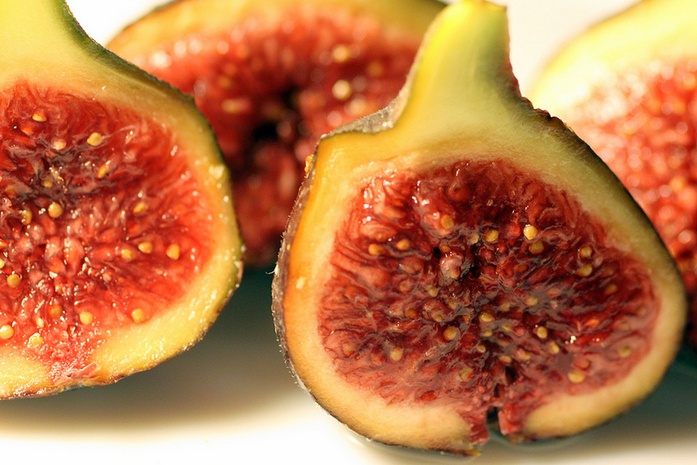The Fig
In ancient times, as well as today, figs were a prominent, yet inexpensive, food source in Israel. The fruit was used as examples and metaphors to teach us how to live, and the ways of God. Here are a few interesting facts.
The fig has medicinal qualities, and was used on Hezekiah as a poultice, placed on the boil that had made him ill. In the law concerning the Sabbath, orchards of figs were to be left alone in the seventh year, so they could be eaten by the beasts of the field and gathered for food by the poor.
Figs are mentioned as part of the “Seven Species” named in Deuteronomy 8:8, where Israel is described as a blessed land. In Proverbs 27:18, there is an analogy made between a person who tends a fig tree is allowed to eat the fruit and a person who cares for his master will be honored, implying that fig trees represent people of prominence and authority in ancient Israeli culture. In Hosea 9:10, the first-ripe fig, in its first season, is used to describe the Hebrew patriarchs.
In Jeremiah 24, God uses good, edible figs as a metaphor for His people in leadership that obeyed Him, and rotten figs for King Zedekiah, who refused to obey the prophet Jeremiah. Micah, in chapter 7, likens figs to the characteristics of being Godly and upright.
In the Gospels, Yeshua curses a fig tree because it has no fruit. The early fig tree puts out fruit before it puts out leaves, so a fig tree with leaves should have had fruit on it. That tree was symbolic of a person of prominence being “all show” and no substance; e.i., a hypocrite. Yeshua cursed it to the root, because hypocrisy is rooted in evil.
Perhaps the most meaningful symbolism is found in the Hebrew etymology of the word fig.
bikkurah: the first ripe fig, early fig
Original Word: בִּכּוּרָה
Part of Speech: Noun Feminine
Phonetic Spelling: (bik-koo-raw')
from bakar: to bear new fruit, to constitute as first-born
Original Word: בָּכַר
Part of Speech: Verb
Phonetic Spelling: (baw-kar')
Original Word: בִּכּוּרָה
Part of Speech: Noun Feminine
Phonetic Spelling: (bik-koo-raw')
from bakar: to bear new fruit, to constitute as first-born
Original Word: בָּכַר
Part of Speech: Verb
Phonetic Spelling: (baw-kar')
from a primitive root word: to burst the womb, i.e. to bear or make early fruit (of woman or tree); to give the birthright, to make firstborn, be firstling, bring forth first child (new fruit).

